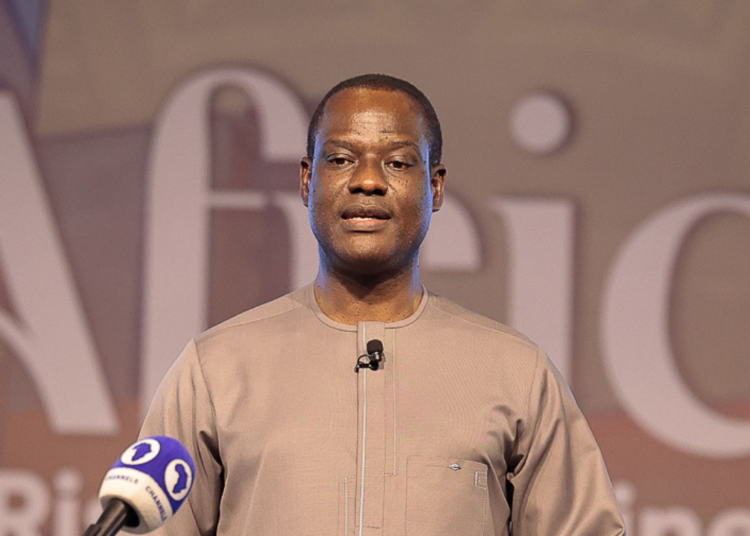The federal government has revealed plans to significantly raise the current tax exemption threshold for companies from N25 million in annual earnings in its proposed new tax reforms.
It is aimed at legally exempting 95 per cent of businesses and individuals operating in the informal sector from paying any taxes.
This is to mitigate the effect of inflation and to support small businesses and low-income earners.
Chairman of the Presidential Fiscal Policy and Tax Reforms Committee, Taiwo Oyedele, disclosed this to journalists during the weekend at the sidelines of the close-out meeting of the committee in Abuja.
Oyedele stated that the committee’s data-driven approach had led them to conclude that the informal sector comprises people simply trying to earn a legitimate living.
As such, the reforms propose exempting 95 per cent of this sector from all taxes, including withholding tax, company income tax and payroll taxes.
Going forward, he added, tax compliance would be squarely focused on government officials and the elite class.
He said, “So we’re using data to inform our decisions; currently if you earn N25 million a year or less, you don’t have to pay company income tax, you don’t have to worry about VAT.
“We’re looking at increasing that significantly, first to recognise the inflation we’ve had to contend with over the past few years, and also because we think that this whole idea and concept of ‘your money is in the informal sector’ is not supported by data.
“We think that the informal sector are people who are trying to earn a legitimate living; we should allow them to be and support them to grow to a point where they can then have the ability to pay taxes.
“So we think that 95 per cent of the informal sector should be legally exempted from all taxes: withholding tax, company income tax, even PAYE (pay as you earn) on their staff; let them be.
“We can then focus our attention on the top five per cent of that sector and, of course, the middle class and the elite. We think that the days of being above the law in paying taxes are over.
“The same thing we’re saying to our leaders, whether they are elected or appointed, we think they have to lead by example by showing that they have paid the taxes, not only on time, but correctly to the lawful authorities as contained in the various laws.”
Oyedele noted that despite the proliferation of taxes and levies at federal, state and local levels, Nigeria’s tax collection as a percentage of GDP remains low.
He stated that the path forward involves repealing many existing taxes, harmonising remaining ones to single digits, and improving collection efficiency.
“So, I think everybody, even if you’re not a business person, you’ll feel the impacts of multiple taxation almost everywhere you turn; there’s one tax or the other.
“It affects small businesses even more than large businesses, and also the poor and vulnerable population are having to deal with it. Unfortunately, despite these many taxes all over the place, our tax collection as a percentage of GDP is low.”
He affirmed the government’s commitment to fixing Nigeria’s problematic tax system comprehensively, rather than attempting stop-gap measures that could be upended by future administrations.
“We have to admit and recognise that these problems will not disappear overnight; it’s work in progress. We have not even submitted our work to the National Assembly.
“So our expectation is, as we progress now from ideation, proposal to implementation, you’ll see less and less of those issues and then you’ll see that harmony in the direction of the fiscal system, not only in the number of taxes we collect being very few, with threshold for poor people and small businesses.
“You will also see an improvement in how those monies are spent in terms of priority of spending, in terms of the efficiency of spending, and then in terms of focusing on what impacts on the lives of the majority of our population who live in multidimensional poverty. That is the direction we’re going and we’re positive about that,” Oyedele said .
He said the tax reform proposals are currently undergoing private sector consultations, with plans to submit them to the National Assembly afterwards.
After internal approvals by June, he said the proposals will go to the National Assembly in the third quarter of 2024, with some components like the National Tax Policy effective by year-end.
He , however, said aspects requiring constitutional amendments could take until 2026 to implement fully.
“So it’s ready, we’re waiting for the final signature. We also have a new National Tax Policy that communicates this direction of our tax system, how we’re going to be spending our money. We have a Spending Policy now, as well as Borrowing Policy so that the social contract with the people is delivered to them in a meaningful way.
“So all of that will happen before the end of the year, but where we are enacting the law and proposals to amend the Constitution will happen in 2025, and maybe 2026 in the case of the Constitution because I think the timeline that the National Assembly has is about two years,” he said.





